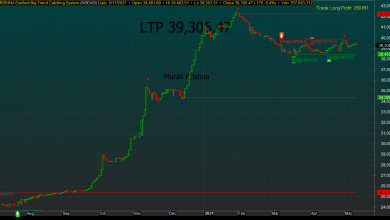MTNN, CCNN In, PZ Out, As NSE Announces Full-year Review Of Market Indices

The Nigerian Stock Exchange (NSE), on Tuesday, announced the outcome of its annual full-year market index review of its NSE 30, NSE Lotus Islamic, NSE Pension, and Corporate Governance Index; the five sectoral indices of The Exchange – NSE Banking, NSE Insurance, NSE Industrial, NSE Consumer Goods, and NSE Oil & Gas, among others.
As a result of the review, which led to the entry and exit of major companies from several indices with effect from Thursday, January 2, the first trading day of the year 2020, also there were no changes in the NSE Consumer Goods, Banking and the oil and gas Indexes.
The NSE 30 index saw the most significant changes, as the trio of Cement Company of Northern Nigeria, FCMB and MTN Nigeria replaced energy giants- Forte Oil, and Oando, as well as PZ Industries.
In the insurance index, Veritas Kapital Assurance and Continental Insurance are giving way to Cornerstone Insurance and Sunu Assurance Nigeria; while Premier Paints has displaced Notore Chemical Industry in the NSE Industrial index.
MTN Nigeria displaces Glaxo Smithkline from the NSE Pension index; just as GSK; Chemical and Allied Products and Presco are giving way to the duo of MTNN and Forte Oil in the Lotus Islamic Index.
MTN Nigeria also makes an inroad into the corporate governance index, even while none is being removed.
Conoil, Dangote Cement and Vitafoam are coming into the AfrinvestDiv Yield Index, displacing NASCON Allied; NEM Insurance and UACN; while Cadbury Nigeria, CAP, Dangote Cement, Ecobank Transnational Incorporated, May & Baker; UAC Properties, Wapic Insurance, Zenith Bank are coming into the Meristem Growth Index, replacing Access Bank, Dangote Sugar, and Flour Mills.
Also, Dangote Cement, Guaranty Trust Bank, and Wapic Insurance will replace CCNN, Conoil, Custodian Insurance, Forte Oil, GSK, NAHCO, and NASCON, among others.
A statement by the NSE explained that “the indices were developed to allow investors to follow market movements and properly manage investment portfolios.”
Publication of the indices, began with the NSE 30 Index in February 2009 using index values from January 1, 2007 and designed using the market capitalization methodology. They are rebalanced, on a semi-annual basis, on the first business day in January and in July.
On July 1, 2008, the NSE developed five sectoral indices with a base value of 1,000 points, designed to provide investable benchmarks to capture the performance of specific sectors.
The sectoral indices comprise the 15 most capitalized and liquid companies in the Insurance and Consumer Goods sectors; the 10 most capitalized and liquid companies in the Banking and Industrial Goods sectors; and the seven most capitalized and liquid companies in the Oil & Gas sector.
The Exchange, in collaboration with issuers like Lotus Capital, Meristem Securities, and Afrinvest, has also published co-branded indices.
Photo caption: From left, Joseph Ogbeide, Brand Manager, The Nigerian Stock Exchange (NSE); Olufemi Shobanjo, Head, Broker-Dealer Regulation, NSE; Elsie Okpocha; Bola Adeeko, Divisional Head, Shared Services, NSE; Ace Comedian, Bright Okpocha aka Basketmouth with his kids; Ann Obaseki, Talent Manager; Kenneth Nwafor, Head, Market Operations, NSE; and Opeoluwa Adesanya, Head, State-Owned Enterprise Listings, NSE; at the End-of-Year Closing Gong Ceremony, held at The Exchange, Lagos on Tuesday, 31 December 2019.





